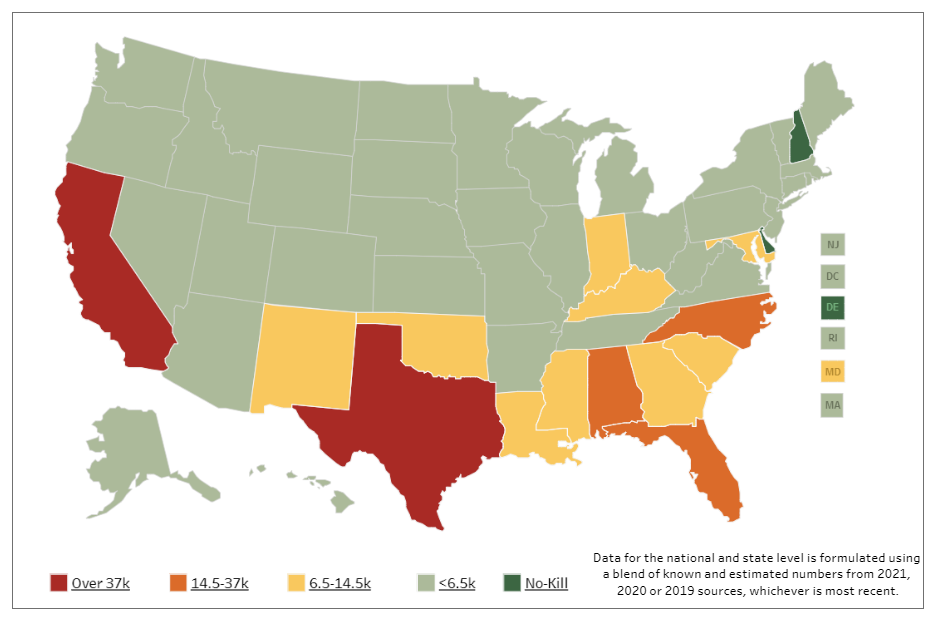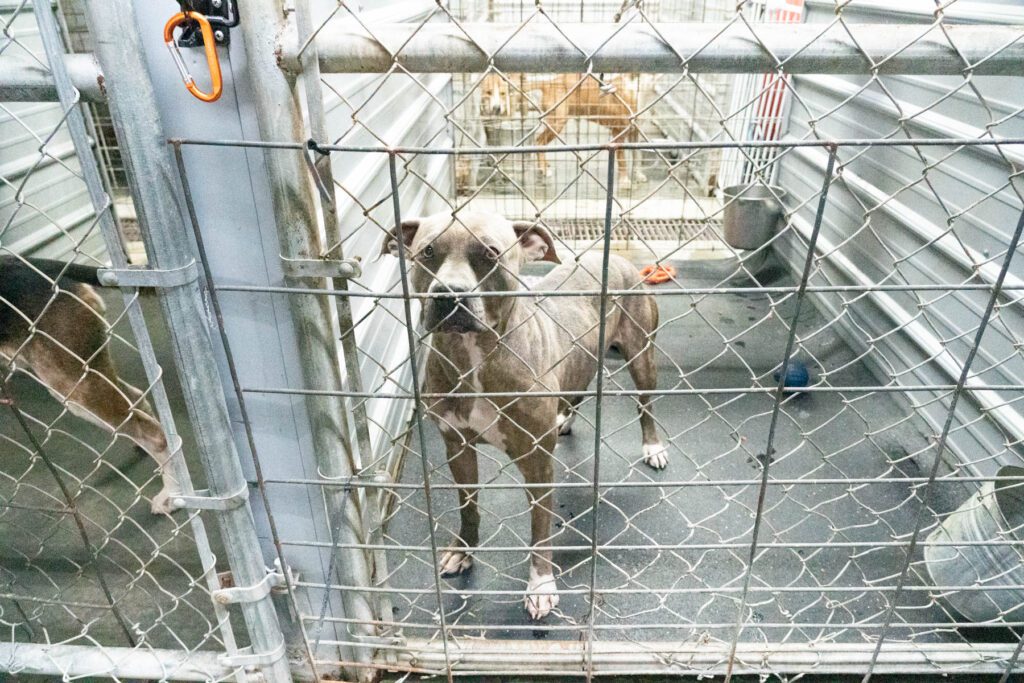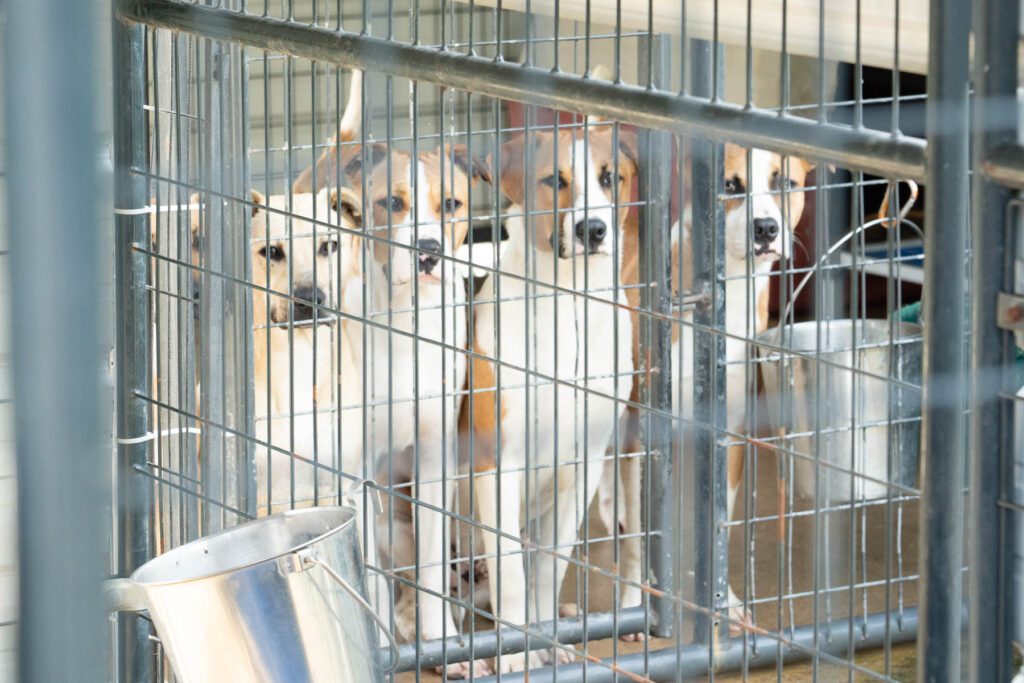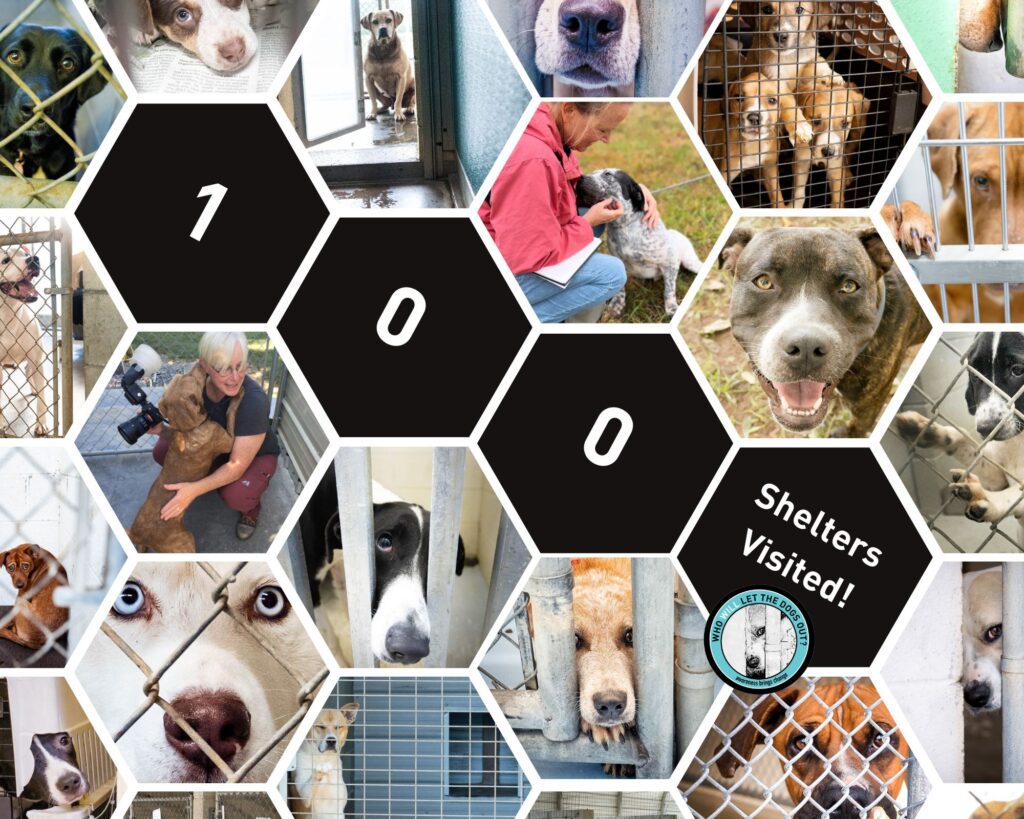We leave next week for shelter tour. This time to Virginia and North Carolina – one of the notorious five states killing the most animals, according to Best Friends Animal Society, the unofficial leader of the No-kill movement.

In North Carolina, unlike most states, the law requires that every county animal shelter report its numbers (and every county in North Carolina has a shelter except one – which we will visit!). If you’d like to see the report for 2021, click here.
Numbers have been a nemesis of mine. I’m always cautious about how they’re used and why. In North Carolina’s case, the numbers are pretty basic. They tell you one piece of the story.
The numbers collected:
INTAKE: The number of each kind of animal – dog, cat, rabbit, opossum, lizard, hedgehog, owls, any animal that comes into shelter custody for any reason (owner surrender, seizure by law enforcement, strays picked up by good Samaritans or animal control officers, or dumped anonymously at the shelter).
ADOPTED OUT: The number of animals who leave via local adoptions and rescue transfers
RETURNED TO OWNER: The number of animals reclaimed by their owners.
EUTHANIZED: The number of animals euthanized on the authority of the shelter (sometimes by trained Animal Control officers, sometimes at a local vet office). There are no qualifiers to say whether the dog was dying when it arrived, succumbed to disease while in custody, was euthanized at owner’s request, or the staff decided to euthanize it for any reason.

With those four basic numbers, you can easily calculate how many animals that come into the shelter get out alive, but you can’t tell much else. You can also see the budgets for each shelter, so you know how much a county spends per animal.
Judging a shelter by those numbers seems fair, until you learn that a county had a handful of hoarding cases with animals so far gone that euthanization was the kindest outcome. Or that a sick cat brought a respiratory virus that wiped out multiple litters of kittens.
The numbers don’t tell you whether the shelter practices ‘managed intake,’ which means the staff decides which animals to accept into the shelter and which to turn away. They also don’t tell you how many animals the shelter staff helped to stay in their homes by offering food, veterinary care, or assistance of any kind.
In 2021, North Carolina euthanized over 10,000 dogs. Which sounds pretty bad, but having now traveled to 95 shelters and rescues in 12 states, I’m fairly certain that North Carolina is not one of the top five states killing dogs. They just own up to their numbers. And because of that, they are on their way to fixing their shelters.
There are too many counties all over the south, where no one is counting the numbers. Best Friends, the Humane Society, and any organization trying to keep account of how many animals are dying and in which states, have to gather those numbers by estimations, veterinary reporting, private rescues, and basic guessing. Without official record-keeping, their numbers will always be simply one organization’s best guess.

As frustrated as I am by fuzzy numbers, without them, it is hard to draw attention to the problem. We have to start somewhere, and until we can universally define words like ‘adoptable’ and ‘treatable’, all we can go by are the basic intake/outtake numbers. It’s a start, though, and any state serious about tackling their unwanted animal problem, needs to require those numbers (and also have municipal shelters funded by tax payers that can demand those numbers).
Next week we will visit six county shelter, one private rescue organizations, and one other organization that has popped up in the only county in NC that does not have a shelter. We’ll also speak with a local kennel club and meet area rescue advocates. We’ll share the stories of the dogs and people we meet on Facebook, Instagram, or TikTok and this blog to help us raise awareness.
During this tour we’ll make our 100th shelter visit! And coincidentally (or maybe providence!?) it looks like that stop will be at an organization called CARA (Carolina Animal Rescue and Adoption).

I hope you’ll follow along as we go live as often as possible to take you inside the shelters. We bring food and supplies to every shelter we visit. If you’d like to help us do that, you can donate through our Impact campaign, or donate directly through Paypal, Venmo, or by sending a check. (Who Will Let the Dogs Out, 128 W High St, Woodstock, VA, 22664)
While North Carolina, may still have a ways to go, I believe they are a state that is taking real steps on the path to becoming a state where every dog has a chance.
Our (still evolving) schedule:
Monday January 9 VA Shelter (not yet confirmed)
Bertie County Humane Society
Tuesday January 10 Tyrell County Animal Shelter
Onslow County Animal Shelter
Wednesday Jan 11 CARA (Carolina Animal Rescue and Adoption) our 100th visit!!!
Moore County Animal Shelter
Thursday Jan 12 Avery County Animal Support
Friday Jan 13 VA Shelter (not yet confirmed)

Until each one has a home,
Cara
If you want to learn more, be sure to subscribe to this blog. And help us spread the word by sharing this post with others. Visit our website to learn more.
You can also help raise awareness by following/commenting/sharing us on Facebook, Instagram, YouTube, and Tik Tok!
Learn more about what is happening in our southern shelters and rescues in the book, One Hundred Dogs & Counting: One Woman, Ten Thousand Miles, and a Journey Into the Heart of Shelters and Rescues (Pegasus Books, 2020). It’s the story of a challenging foster dog who inspired me to travel south to find out where all the dogs were coming from. It tells the story of how Who Will Let the Dogs Out began. Find it anywhere books are sold. A portion of the proceeds of every book sold go to help unwanted animals in the south.
Watch our Emmy-nominated, award-winning short documentary about rescue in western Tennessee here.
For more information on any of our projects, to talk about rescue in your neck of the woods, or become a WWLDO volunteer, please email whowillletthedogsout@gmail.com or carasueachterberg@gmail.com.
And for links to everything WWLDO check out our Linktree.



Kate Anderson
Excellent informative post, Cara!